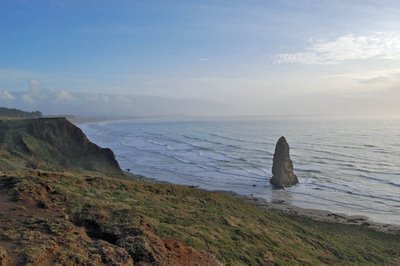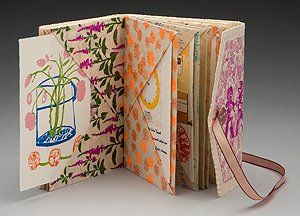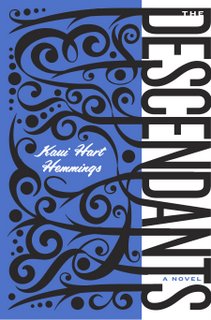Last light
 I’ve never cared much for the hubalub of New Year’s Eve. The forced cheer wears me out. So, last week it was with vigor that I embraced a new sort of new year celebration.
I’ve never cared much for the hubalub of New Year’s Eve. The forced cheer wears me out. So, last week it was with vigor that I embraced a new sort of new year celebration.
A small group of us drove three hours south along the Oregon Coast to arrive at Cape Blanco — the most western point of the contiguous U.S — where we watched the sun set on 2008. In essence, we were the first to see the last sunset.
As the sun slipped in and out of a scattered winter haze, we sipped champagne, burned sage, sang songs, took photos, walked the lighthouse grounds, and recited bits of poetry and prose. It was the perfect marker of ends and beginnings -- and wonderfully free of false joy.
Cape Blanco on December 31 at 4:53pmDrew Myron
On this last day
we stand on the edge of earth
and study the horizon for last light
From this western perch a rolling edge
swallows and surrounds
We spread our arms as the
smallest bird extends its wings
and despite its size
shoulders a trust that
hurts amassed will soften with time
that each day is fuller than the last
that everything flies and forgives
Wind presses memory
cups an ear to the thin wall of hope
answers every loud cry
every sudden turn
every call into the dark well
Says yes
maybe
wait
In this pale light
we peel the skin
of a new start
vow to say yes
quickly, kindly
We’ll talk less
listen more
feel the mark of every heart
As the sun sets
and a faint moon pulls
we dive into all we know
all we do not
all we forget
and forgive
all we hope
to love
to live
 Wednesday, January 7, 2009 at 9:50AM
Wednesday, January 7, 2009 at 9:50AM  Post a Comment |
Post a Comment | 


